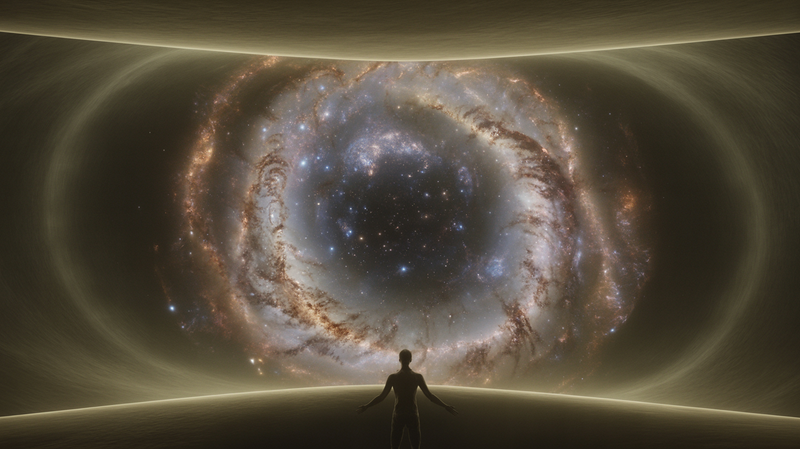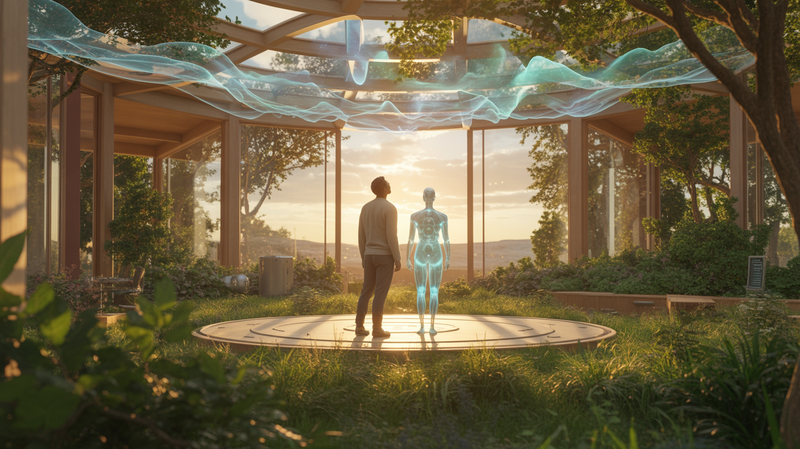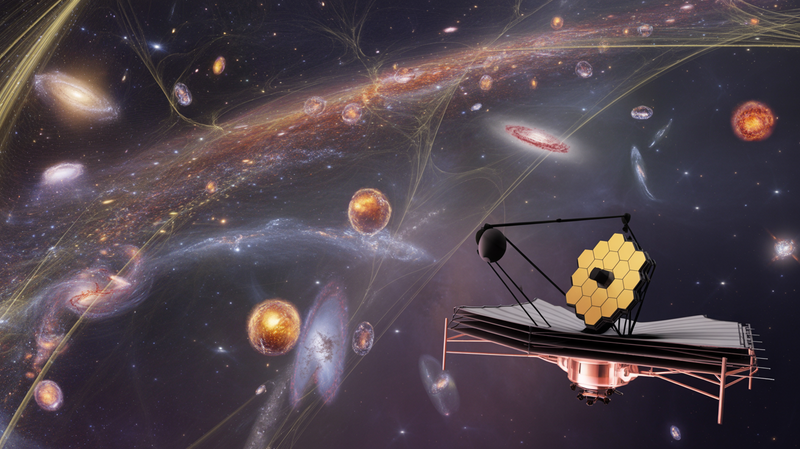Awakening in the Age of Untruth: A Reflection on George Orwell's '1984' in the Contemporary World
In a world teetering precariously on the edge of a reality eerily reminiscent of the dystopian society George Orwell painted in his magnum opus '1984', it becomes ever more vital to revisit the truths that led to its creation. In an age where the deluge of information has

In a world teetering precariously on the edge of a reality eerily reminiscent of the dystopian society George Orwell painted in his magnum opus '1984', it becomes ever more vital to revisit the truths that led to its creation. In an age where the deluge of information has been tainted by an equally overwhelming tide of misinformation, citizens are adrift in an ocean of lies, their own memories destabilized, untrustworthy, unable to be independently verified.
This story is born in the heart of such a contemporary landscape, providing a crucial reflection upon our society today. It traces the journey of Orwell as he painstakingly navigated the murky waters of totalitarianism, to manifest '1984', a chilling prophecy that continues to echo with unnerving resonance in our present reality. It underlines the significance of Orwell's dedication to truth, his meticulous research, and the powerful warning he issued about the abuse of power and manipulation of truth. His observations about the human condition, the nature of power, and the fragility of truth seem all the more pertinent in an era where "alternative facts" can take root and flourish.
As we delve into the making of '1984', the stark parallels that can be drawn to the world we inhabit today further amplify the importance of Orwell's masterpiece. It remains a testament to the potential dangers that lurk in the unchecked corridors of power and the silencing of historical integrity. Here is the chronicle of Orwell's path to '1984' – a testament to the pursuit of truth in a world where the concept of objective truth is dangerously fading.
In the tempest of our post-truth era, where propaganda, misinformation, and 'alternative facts' run rife, the significance of George Orwell's '1984' rings louder than ever. The novel's profound implications are not merely confined to the realms of fiction, but hold up a disconcerting mirror to our society's growing normalization of surveillance, censorship, and historical revisionism. The echoes of Orwell's warnings are now not just prescient but tangible realities that shape our daily lives.
Orwell's careful scrutiny of totalitarian regimes, his exploration of their manipulative strategies, and his visceral understanding of their threats to individual freedom and truth formed the bedrock of '1984'. Orwell did not simply conjure a dystopian society from imagination. Instead, he meticulously constructed a grim reality, drawing inspiration from the political climate of his time, his experiences in the Spanish Civil War, and his observations of Stalin's USSR.
As we find ourselves increasingly immersed in the digital age, where technology has reshaped the dynamics of power and surveillance, Orwell's 'Big Brother' does not seem so far-fetched. Our every online action, every digital footprint is traceable, collected, and often stored. This shift from privacy to surveillance parallels the invasive gaze of Big Brother, whose constant watch on Oceania's citizens underpins the novel's chilling narrative.
Likewise, the novel's concept of 'Newspeak', a language designed to narrow the range of thought and control the collective mindset, finds its modern equivalent in the strategic use of political rhetoric, media bias, and online echo chambers. Today, the power to manipulate language and information echoes Orwell's warning of how malleable our perceptions, beliefs, and even history can be in the hands of those who wield power.
The world of '1984' is a grim reminder of the thin line between democracy and authoritarianism. The danger lies not in the dramatic overthrow of democratic principles but in the gradual erosion of civil liberties and truth, a process that often unfolds beneath our collective consciousness until it is too late.
However, the strength of '1984' lies not only in its stark warnings but also in its affirmation of the human spirit's ability to resist. Winston Smith, despite the oppressive regime and near-certain doom, chooses to rebel. His rebellion, though doomed, stands as a symbol of human resilience and the enduring pursuit of truth in the face of falsehood. It is this aspect of hope that we must carry forward in our current age.
Orwell's '1984' is a call to vigilance against the suppression of truth, the manipulation of information, and the encroachment on individual freedoms. It underscores the importance of critical thinking, of questioning authority, and of standing for truth, even when it is most inconvenient. As we navigate through the complex challenges of our age, Orwell's haunting vision serves as a compass, a reminder that the pursuit of truth is paramount to preserving the foundations of our society.
Thus, Orwell's path to '1984' is not just a historical account; it is a critical guidebook for our time. It stands as a testament to the enduring relevance of literature and its power to illuminate the darker corners of our reality. It reminds us that even as we battle the distortions of truth in our post-truth world, the spirit of resistance - the spirit of Winston Smith - is alive within us. That spirit, fostered by education, free thought, and unflinching commitment to truth, is our best defense against a descent into the dystopia of Orwell's creation. As we immerse ourselves in Orwell's narrative, we are not merely reading a novel; we are mapping the potential path of our society and our humanity. And it is a map that we ignore at our peril.
As we stand at the precipice of an era that seems to increasingly mirror the dystopian society depicted in '1984', we must not let the narrative of Orwell's cautionary tale pass us by as mere fiction. The echoes of Orwell's world are undeniably present in our current reality: the erosion of privacy, the manipulation of truth, and the silencing of dissent. The novel is not just a testament to the perils of totalitarian regimes of the past, but a stark warning of the dangers we are facing here and now.
Now, more than ever, we are called upon to uphold the fundamental principles of freedom, democracy, and truth. The lessons from '1984' should not just alarm us, but invigorate us, inspire us to fiercely guard our freedoms and relentlessly pursue the truth. Orwell's world, teetering between the real and the possible, must serve as a wake-up call, jolting us into a consciousness of the threats looming on our societal horizon.
Just as Winston Smith had the courage to stand up to the authoritarian regime, despite his solitude and the insurmountable odds, so must we have the bravery to face the distortions of truth that we encounter in our daily lives. We must actively strive to educate ourselves and others, to question the narratives handed down to us, to challenge authority when it infringes on our rights, and most importantly, to remember the power and the necessity of individual thought.
The spirit of resistance that Winston embodies is not confined to the pages of '1984'; it is a call to action for all of us. It is an urge to not remain passive in the face of falsities but to actively push against the currents of misinformation. Our memory, our objective truth, our freedoms - these are the weapons in our arsenal against the encroaching tide of dystopia. We are not merely bystanders but active participants in this narrative of our time.
In the pursuit of truth, we must keep Orwell's vision at the forefront of our consciousness. As we navigate the murky waters of our post-truth era, '1984' serves as a beacon, its grim narrative illuminating the potential perils of complacency and the unabated march of authoritarianism.
As we stand on the precipice of change, we must heed Orwell's warning: "Don't let it happen. It depends on you." For if we lose our hold on the truth, we risk surrendering to the chilling world that Orwell so vividly painted, a world where "war is peace, freedom is slavery, ignorance is strength." We must awaken to the urgency of now, challenge the assault on our freedoms and relentlessly guard our right to the truth. Only then can we ensure that '1984' remains a novel, not our reality.




